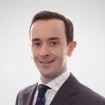- with readers working within the Retail & Leisure industries
In a judgment on 1 May 2025, the Court of Appeal increased the FRAND licence fee payable by Apple to Optis (a so-called "non-practicing entity" who monetise IP rights) relating to the 4G standard almost tenfold to a lump sum of US$ 502 million, plus interest. This is the latest judgment in an eight-year-long dispute between the parties, which has already encompassed six first instance trials in the UK and a corresponding set of actions in the Eastern District of Texas.
The initial UK "technical" trials had found some of Optis' patents valid and essential to the 4G standard (and therefore inevitably infringed). In "Trial E", from which this appeal arose, the judge at first instance had calculated Apple's FRAND licence fee as a lump sum of US$ 56.43 million.
Whilst the appeal covered other issues, the main dispute was over the value of the payment. As with all instances of FRAND licence terms being determined by the court, there was considerable disagreement in Trial E over the approach to valuation and an appropriate licensing rate, with the trial lasting five weeks and covering large amounts of factual and expert evidence.
Despite (or, possibly, because of) this mass of conflicting evidence, the judge at first instance decided that neither of the parties' approaches to valuation was correct and applied his own approach. This involved attempting to determine a lump sum value for licence based on the licensor's (Optis') share of the overall "stack" of standard essential patents (SEPs) covering the 4G standard. Such a "top down" approach to valuing a FRAND licence had previously only ever been used by the UK courts as a cross-check, rather than as the core mechanism for determining the amount payable and was heavily criticised by Optis in the appeal. It is notable, however, that this approach has many similarities to the EU Commission's now-defunct proposals for regulating SEPs.
In the appeal, Birss LJ (who gave the decision in the Unwired Planet case which contained UK's first court-determined FRAND royalty rate) determined that the judge's approach was wrong and that the FRAND rate should be calculated as a "per unit" rate on Apple's sales of relevant devices (and notably not a value-based or percentage rate based on sale prices). Although aspects of this had been hotly contested before, by the time of the appeal, both Apple and Optis had agreed that this was correct, which assisted Birss LJ in concluding that he could reach his own determination of the royalty rate, rather than order a full retrial. Many of the underlying calculations are redacted from the judgment, but the relevant figure ended up being US$ 0.15 per unit, ultimately being chosen because US$ 0.20 was considered too high, whilst US$ 0.10 was too low.
Birss LJ's judgment cuts through much of the complexity of the financial evidence to arrive at "sensible" number. Although Apple have indicated an intention to appeal, it is noted that the amount is still considerably lower than Optis was seeking.
J A Kemp LLP acts for clients in the USA, Europe and globally, advising on UK and European patent practice and representing them before the European Patent Office, UKIPO and Unified Patent Court. We have in-depth expertise in a wide range of technologies, including Biotech and Life Sciences, Pharmaceuticals, Software and IT, Chemistry, Electronics and Engineering and many others. See our website to find out more.
The content of this article is intended to provide a general guide to the subject matter. Specialist advice should be sought about your specific circumstances.


